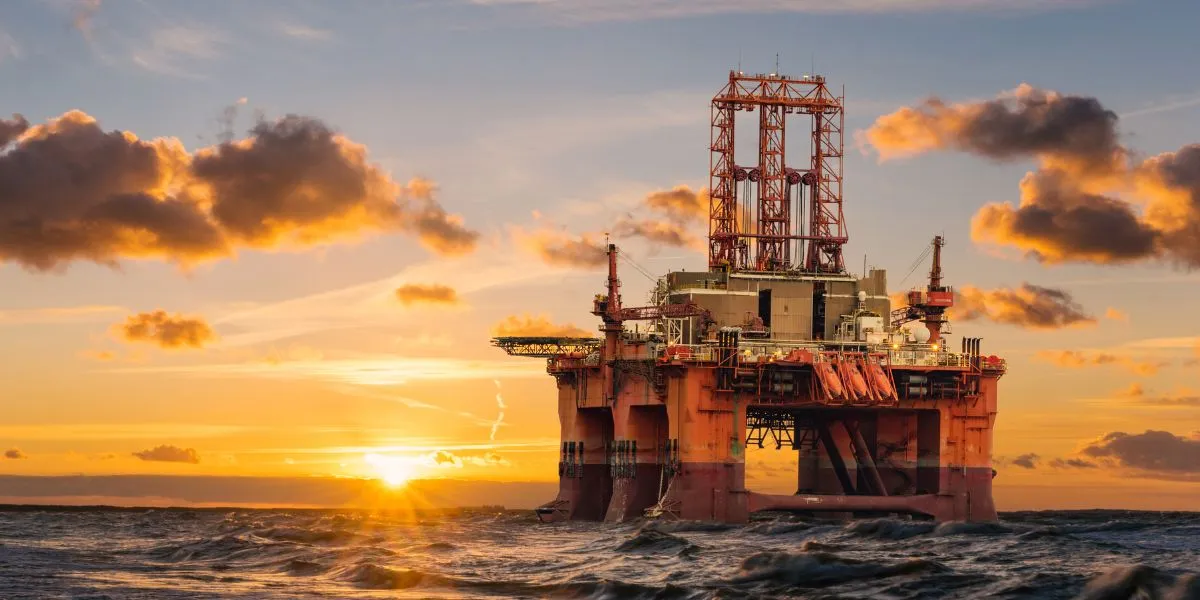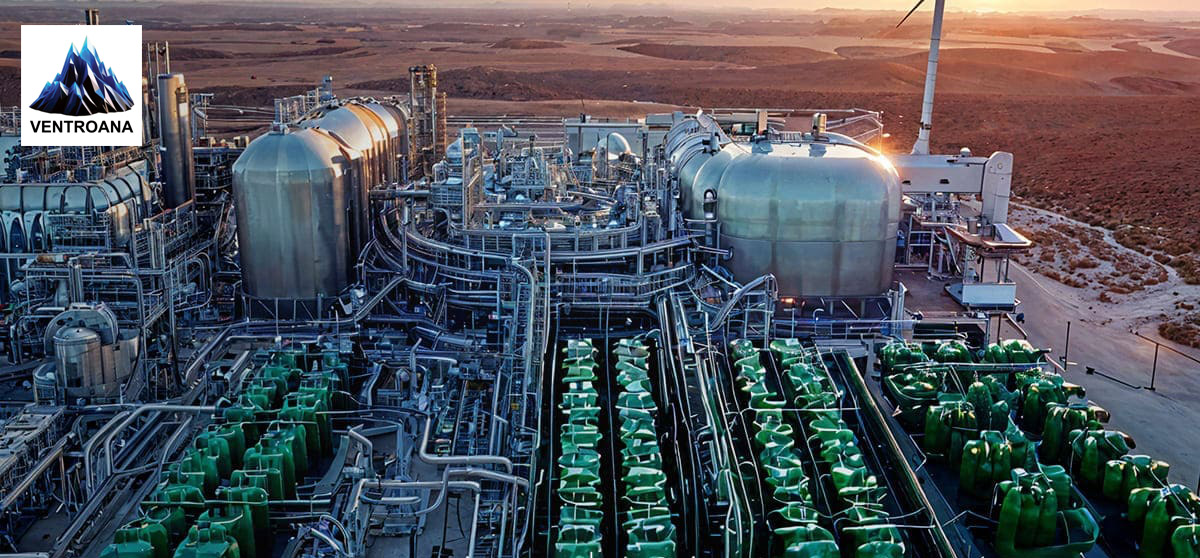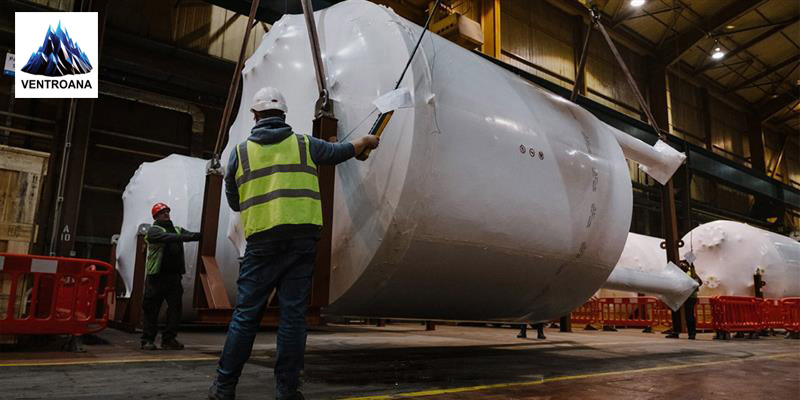Marine Resources
April 24, 2024

In the vast expanse of our oceans lies a world of untapped potential – reservoirs of oil and gas waiting to be discovered and harnessed to meet the world's energy needs. However, as traditional sources become harder to reach and environmental concerns heighten, the future of oil and gas exploration depends more than ever on cutting-edge marine technology.
Global energy demand continues to rise, driving the need for exploration and extraction of oil and gas resources. As traditional reserves become more challenging to access, the oil and gas industry is turning to marine technology to unlock new frontiers beneath the ocean's surface.
By 2030, global marine economy growth is projected to reach $3 trillion.
Over the years, technological advancements have transformed the way we explore and extract resources from beneath the ocean floor. Gone are the days of relying solely on human divers and cumbersome machinery. Today, sophisticated tools and systems are leading the charge, enabling safer, more efficient, and environmentally conscious exploration.
Marine technology has long been a cornerstone of offshore oil and gas exploration. From seismic surveys to drilling operations, advancements in marine technology have enabled industry to reach greater depths and explore remote offshore locations. Today, marine technology encompasses a wide array of tools and systems, ranging from autonomous underwater vehicles (AUVs) and remotely operated vehicles (ROVs) to sophisticated drilling rigs and subsea production systems.
The Marine Sensors Market had a valuation of USD 23.66 Billion in 2023 and is anticipated to reach USD 39.77 Billion by the end of 2030. It is forecasted to expand at a CAGR of 7.7% during the period from 2024 to 2030.
Marine biotechnology, an innovative realm of science and engineering, harnesses marine bioresources for diverse applications, including food, fuel, materials, and bioactive compounds. With the potential to foster green growth and sustainable industries, it paves the way for prosperous communities.
Marine Biotechnology Market size is estimated to grow at a CAGR of 6.2% over the forecast period.
At the forefront of this revolution are autonomous systems – unmanned underwater vehicles (UUVs) and remotely operated vehicles (ROVs). These marvels of engineering can navigate the depths with precision, gathering data and performing once unimaginable tasks. Equipped with advanced sensors and artificial intelligence, they offer a glimpse into a future where human intervention is minimized, and exploration becomes more streamlined.
But it's not just about hardware – it's also about the power of data. In the digital age, data is king, and the oil and gas industry is using its potential like before. Through big data analytics and machine learning, companies can analyze vast amounts of information in real-time, optimizing drilling operations, predicting maintenance needs, and minimizing environmental risks. This data-driven approach not only improves efficiency but also helps ensure responsible and sustainable practices.
Moreover, the future of marine technology in oil and gas exploration isn't just about extracting fossil fuels – it's also about embracing sustainability. As the world shifts towards cleaner energy sources, offshore operations diversify to include renewable solutions such as offshore wind, hydrogen production, and carbon capture and storage (CCS). By leveraging their expertise in marine engineering and logistics, oil and gas companies play a pivotal role in driving innovation in these emerging sectors.
Of course, navigating the future of marine technology in oil and gas exploration comes with its own set of challenges. From harsh environmental conditions to regulatory hurdles, operators must navigate a complex landscape. However, with every challenge comes an opportunity for innovation. By investing in research and development, collaborating with industry partners, and staying ahead of the curve, companies can overcome these obstacles and pave the way for a brighter future.
Industry grapples with navigating harsh environmental conditions in remote offshore locations, necessitating robust and reliable marine technology solutions. Stringent regulatory compliance requirements, mandate careful planning and adherence to best practices to ensure the safety of operations and the protection of marine ecosystems.
Offshore exploration and production operations are often conducted in harsh and remote environments, including deep water, Arctic regions, and high-pressure/high-temperature (HP/HT) reservoirs. These challenging conditions pose significant technical, logistical, and safety challenges for operators, requiring robust and reliable marine technology solutions.
The oil and gas industry is subjected to stringent regulatory requirements aimed at protecting the marine environment and ensuring the safety of offshore operations. Compliance with regulations governing drilling, production, and environmental protection requires careful planning, monitoring, and adherence to best practices in marine technology and engineering.
In an era of increasing environmental awareness and climate change concerns, the oil and gas industry faces growing pressure to reduce its carbon footprint and minimize environmental impact. Offshore exploration and production activities can pose risks to marine ecosystems, including oil spills, habitat destruction, and pollution. Addressing these environmental challenges requires a holistic approach that integrates advanced marine technology with sustainable practices and technologies, such as carbon capture and storage (CCS), renewable energy integration, and ecosystem monitoring.
The integration of renewable energy solutions presents promising opportunities for the oil and gas industry to diversify its portfolio and contribute to the transition to a low-carbon economy.
The transition to a low-carbon economy presents opportunities for the oil and gas industry to diversify its portfolio and embrace renewable energy solutions, such as offshore wind, wave, and tidal energy. By leveraging their expertise in marine engineering and offshore operations, oil and gas companies can play a leading role in the development and deployment of renewable energy projects, contributing to the decarbonization of the energy sector and the transition to a sustainable future.
The ongoing digital transformation of the oil and gas industry offers opportunities for innovation and efficiency improvement across the entire value chain. By investing in digital technologies, such as artificial intelligence, robotics, and IoT sensors, companies can optimize operations, reduce costs, and enhance safety and environmental performance. Furthermore, collaboration with technology startups and research institutions can foster innovation and drive the development of cutting-edge marine technology solutions for offshore exploration and production.
As offshore reserves become increasingly challenging to access, subsea processing and production technologies are playing a crucial role in extracting oil and gas from deep water and ultra-deep-water fields.
Subsea processing systems, such as subsea pumps and separators, enable the separation and treatment of hydrocarbons on the seabed, reducing the need for surface facilities and lowering production costs. Subsea production systems, including subsea trees and manifolds, allow for the extraction of oil and gas directly from the reservoir to subsea wells, minimizing the complexity and environmental footprint of offshore installations.
As we chart a course into the future, one thing is clear – the role of marine technology in oil and gas exploration will only continue to grow in importance. By embracing innovation, harnessing the power of data, and embracing sustainability, industry can confidently navigate these uncertain waters. Together, we can unlock new reserves, drive operational efficiency, and usher in a new era of responsible energy exploration. The journey ahead may be challenging, but with the right tools and technologies at our disposal, the possibilities are endless.
Ventro Analytics, can play a crucial role in oil and gas exploration by leveraging its expertise in renewable energy systems and marine engineering. We facilitate the development of sustainable power generation projects that maximize energy output while minimizing environmental impact.
With our commitment to technological innovation and sustainable development, we are poised to drive progress by utilizing marine technology for oil and gas exploration.
We also provide tailored solutions to meet your unique needs. To avail of our services, you can call us at +1 (888) 774-7632 or send us an email at sales@ventroana.com
Tags: Marine Technology Oil and Gas Oil and Gas Exploration Marine Resources

Successful Implementation of Green Hydrogen in Power Plants
Discover how green hydrogen revolutionizes power plants with sustainable energy solutions, reducing ...

Driving Innovation and Resilience: Insights from the 10th Annual Energy Supply C...
Gain insights on driving innovation and resilience at the 10th Energy Supply Chain & Procurement Sum...

Understanding EPC Engineering: Key Concepts Explained
Discover the essentials of EPC Engineering, covering contracts, project phases, and roles of EPC con...